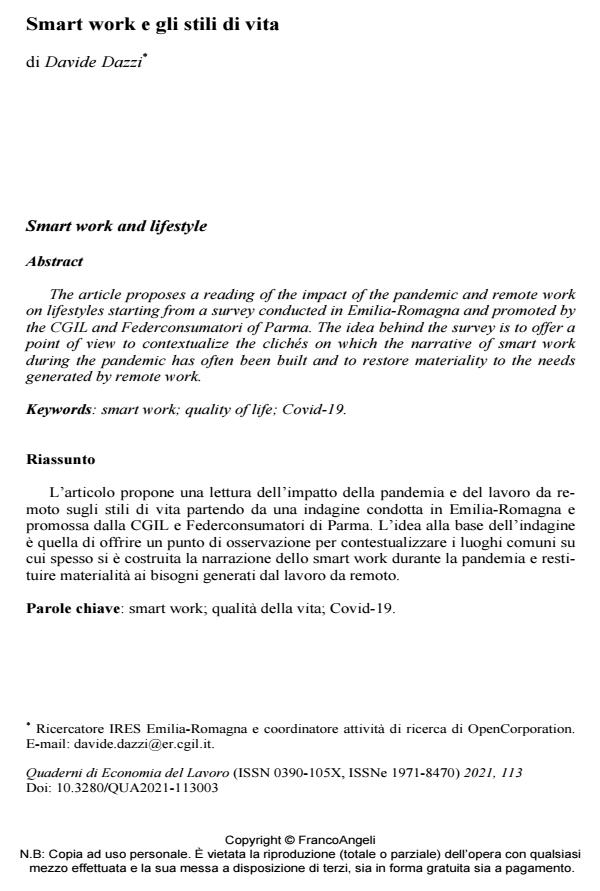Smart work and lifestyle
Journal title QUADERNI DI ECONOMIA DEL LAVORO
Author/s Davide Dazzi
Publishing Year 2022 Issue 2021/113
Language Italian Pages 18 P. 29-46 File size 340 KB
DOI 10.3280/QUA2021-113003
DOI is like a bar code for intellectual property: to have more infomation
click here
Below, you can see the article first page
If you want to buy this article in PDF format, you can do it, following the instructions to buy download credits

FrancoAngeli is member of Publishers International Linking Association, Inc (PILA), a not-for-profit association which run the CrossRef service enabling links to and from online scholarly content.
The article proposes a reading of the impact of the pandemic and remote work on lifestyles starting from a survey conducted in Emilia-Romagna and promoted by the CGIL and Federconsumatori of Parma. The idea behind the survey is to offer a point of view to contextualize the clichés on which the narrative of smart work during the pandemic has often been built and to restore materiality to the needs generated by remote work.
Keywords: smart work; quality of life; Covid-19.
Davide Dazzi, Smart work e gli stili di vita in "QUADERNI DI ECONOMIA DEL LAVORO" 113/2021, pp 29-46, DOI: 10.3280/QUA2021-113003